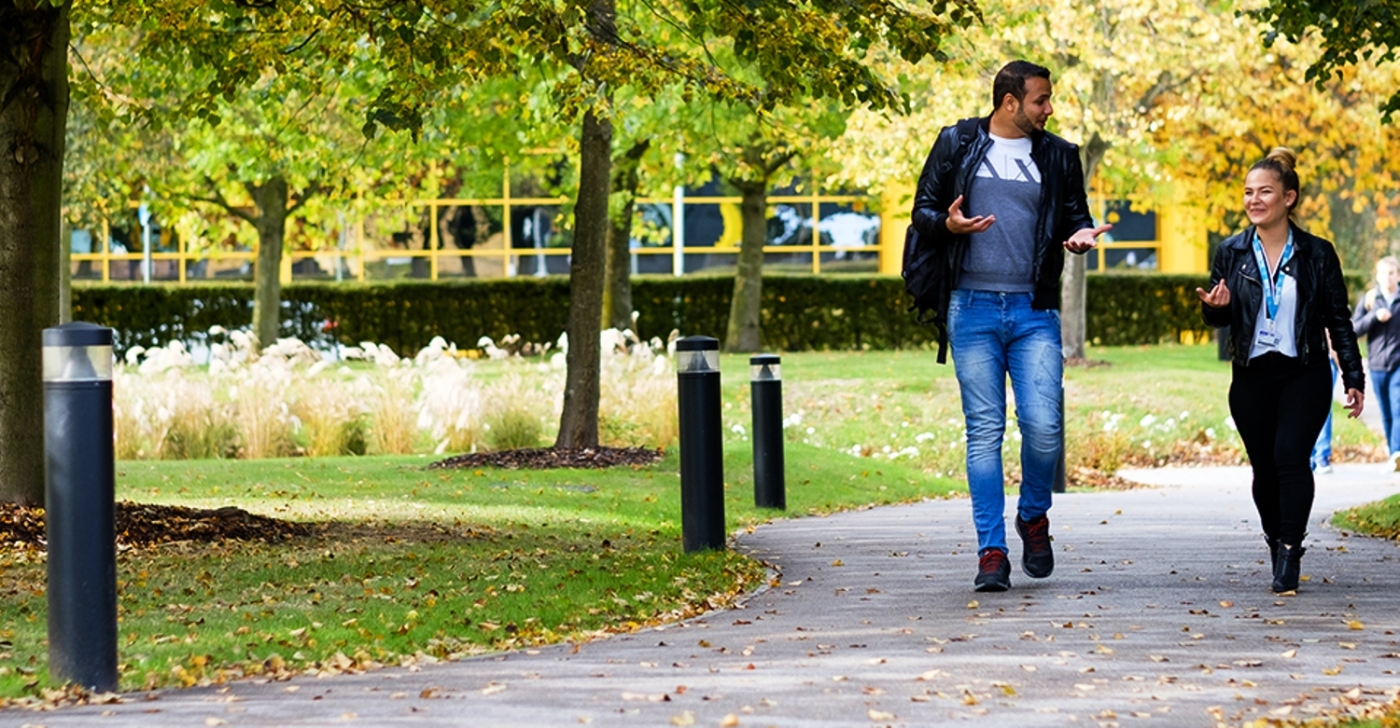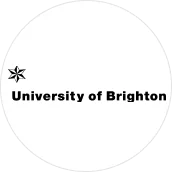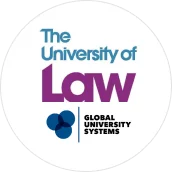
Home > Study in UK > Navitas Group - Hertfordshire International College (HIC) at University of Hertfordshire > University Foundation in Engineering, AI and Robotics (Two -Semester) Leading to Bachelor of Engineering (Hons) in Electrical and Electronic Engineering
University Foundation in Engineering, AI and Robotics (Two -Semester) Leading to Bachelor of Engineering (Hons) in Electrical and Electronic Engineering
-at-University-of-Hertfordshire.png) Navitas Group - Hertfordshire International College (HIC) at University of Hertfordshire, UK
Navitas Group - Hertfordshire International College (HIC) at University of Hertfordshire, UK

GBP 16950
Annual Tuition Fee

Free
Application Fee

42 months
Duration

5.5
IELTS

49
TOEFL

40%
Min GPA
Program Overview
University Foundation in Engineering and Technology Stage1 at Hertfordshire International College (HIC) is designed to prepare you for entry to university-level program. During Stage 1 you will complete a range of modules relevant to your chosen degree, as well as modules concentrating on the skills that are vital for University level education such as Critical Thinking.
A Foundation pathway is available for students who:
- Don’t meet the entry requirements to enter university level study directly (but hold GCSE level qualifications)
- Feel that additional support at the start of university studies will help them stand a better chance of success
- Have been away from studies for a period of time
- Come from a different academic environment to that of the UK
- Require additional English language training
If you fall into any of the above categories, choosing an undergraduate pathway at Hertfordshire International College (HIC) is the right decision. Depending on your academic needs here at Hertfordshire International College (HIC).
Progressing from Foundation
Stage 1 will be the first stage in the 4 stage process. Meaning that on successful completion of stage 1 you will seamlessly progress to stage 2, which is the first year of a bachelor’s degree. There is no need to reapply, you will simply just progress between each stage until you reach the final stage and graduate with a degree from Hertfordshire International College (HIC).
BEng (Hons) Electrical and Electronic Engineering
- This BEng Honours in Electrical and Electronic Engineering will give you a sound technological background in the field of electrical and electronic engineering.
- You will have access to modern engineering tools which will give you the advantage of experiencing a hi-tech laboratory environment.
- Students from the School of Engineering and Technology have previously completed work placement years at companies including: Airbus Space and Defence, Bosch Thermotechnology, and Microsoft
- Recent Electrical Engineering graduates have gone on to work at organisations including: Vodafone, Mitsubishi Electric and Stansted Airport
What's the course about?
- This course gives you a sound technological understanding in the field of electrical and electronic engineering. With access to modern engineering tools and a hi-tech laboratory environment, you’ll learn the latest skills and knowledge in digital signal processing, microelectronic and VLSI (very-large-scale integration) design practice, robotics and neural networks, power systems applications, and advanced power conversion and control application trends. You’ll also have the exciting opportunity to study abroad or work in industry for a year, boosting your CV and employment prospects.
What will I study?
- Our enthusiastic staff are always looking for new ways to enhance your learning experience and over recent years, we have won national awards for our innovative teaching ideas. All of our courses include a significant practical element, which, together with tutorial sessions reinforce the theory delivered during lectures, and you have many opportunities to enhance your presentation skills ready for the workplace.
More about the Course
- This course is designed to enable you to study a range of topics similar to those of the more specific courses but in a more flexible way, allowing you to choose a more diverse individual course. Many of our students have an interest in one or more of the specialist areas and wish to combine them. This study route allows you to do that.
- Final Year students benefit from the opportunity to study modules such as applications of electronics in subjects such as electrical and electronic power control, digital signal processing, micro-electronics, robotics and the option of telecommunication systems or micro-engineering and micro-technology. The aim is to allow you to keep your expertise broad if you wish, allowing you to specialise later.
- This course starts with common study areas to give you a sound understanding of basic electrical and electronic engineering principles. Unlike the other courses, it maintains this breadth in your study of electrical and electronic engineering in the Final Year.
- In your first year you focus on the basic principles and practices needed in electronic engineering, and on developing relevant analytical, design and organisational abilities. You will learn about digital fundamentals, computing concepts and the problem-solving tools that you will need as the course progresses.
- In your second year you will explore in more depth the theories and techniques involved in product design and development, with particular emphasis on 'embedded' real-time microprocessor systems, programmable logic devices and power control. You will learn to apply practical skills to design, implement and test solutions relevant to electrical and electronic engineering.
- In your final year the focus is on understanding more about the specialist technologies that are at the heart of today's advanced communication systems. Mobile communication concepts and computer networks, the design of high-speed analogue and digital electronics using integrated circuits, and radio frequency circuits and systems are all examined, along with key microprocessor topics, fuzzy logic and neural networks and digital signal processing. You will also carry out an individual double-module project on a topic relevant to electrical and/or electronic engineering.
Additional Information
Program Level Undergraduate Pathway
College/University Processing Time 7 Days
Program Format Full-Time
Post-Study Work Visa (PSWV) 
General Admission Requirement
Academic Requirement
- Minimum Level of Education Required: To be accepted for this program, students must have Standard X Secondary School Certificate.
Similar Programs
.png)

Navitas Group - Birmingham City University International College (BCUIC)
Intake Jan 2025
Sep 2024

Application Fee

Duration
Test Score
5.5
IELTS
72
TOEFL
50
Min GPA
.png)

Navitas Group - Birmingham City University International College (BCUIC)
Intake Jan 2025
Sep 2024

Application Fee

Duration
Test Score
5.5
IELTS
72
TOEFL
50
Min GPA
.png)

Navitas Group - Birmingham City University International College (BCUIC)
Intake Jan 2025
Sep 2024

Application Fee

Duration
Test Score
5.5
IELTS
72
TOEFL
60
Min GPA
.png)

Navitas Group - Birmingham City University International College (BCUIC)
Intake Jan 2025
Sep 2024

Application Fee

Duration
Test Score
5.5
IELTS
72
TOEFL
50
Min GPA
.png)

Navitas Group - Birmingham City University International College (BCUIC)
Intake Jan 2025
Sep 2024

Application Fee

Duration
Test Score
5.5
IELTS
72
TOEFL
50
Min GPA
.png)

Navitas Group - Birmingham City University International College (BCUIC)
Intake Jan 2025
Sep 2024

Application Fee

Duration
Test Score
5.5
IELTS
72
TOEFL
50
Min GPA
.png)

Navitas Group - Birmingham City University International College (BCUIC)
Intake Jan 2025
Sep 2024

Application Fee

Duration
Test Score
5.5
IELTS
72
TOEFL
50
Min GPA
.png)

Navitas Group - Birmingham City University International College (BCUIC)
Intake Jan 2025
Sep 2024

Application Fee

Duration
Test Score
5.5
IELTS
72
TOEFL
50
Min GPA
.png)

Navitas Group - Birmingham City University International College (BCUIC)
Intake Jan 2025
Sep 2024

Application Fee

Duration
Test Score
5.5
IELTS
72
TOEFL
50
Min GPA
.png)

Navitas Group - Birmingham City University International College (BCUIC)
Intake Jan 2025
Sep 2024

Application Fee

Duration
Test Score
5.5
IELTS
72
TOEFL
50
Min GPA
.png)

Navitas Group - Birmingham City University International College (BCUIC)
Intake Jan 2025
Sep 2024

Application Fee

Duration
Test Score
5.5
IELTS
72
TOEFL
50
Min GPA
.png)

Navitas Group - Birmingham City University International College (BCUIC)
Intake Jan 2025
Sep 2024

Application Fee

Duration
Test Score
5.5
IELTS
72
TOEFL
50
Min GPA
.png)

Navitas Group - Birmingham City University International College (BCUIC)
Intake Jan 2025
Sep 2024

Application Fee

Duration
Test Score
5.5
IELTS
72
TOEFL
50
Min GPA
.png)

Navitas Group - Birmingham City University International College (BCUIC)
Intake Jan 2025
Sep 2024

Application Fee

Duration
Test Score
5.5
IELTS
72
TOEFL
50
Min GPA
.png)

Navitas Group - Birmingham City University International College (BCUIC)
Intake Jan 2025
Sep 2024

Application Fee

Duration
Test Score
5.5
IELTS
72
TOEFL
60
Min GPA
.png)

Navitas Group - Birmingham City University International College (BCUIC)
Intake Jan 2025
Sep 2024

Application Fee

Duration
Test Score
5.5
IELTS
72
TOEFL
60
Min GPA
.png)

Navitas Group - Birmingham City University International College (BCUIC)
Intake Jan 2025
Sep 2024

Application Fee

Duration
Test Score
5.5
IELTS
72
TOEFL
60
Min GPA
.png)

Navitas Group - Birmingham City University International College (BCUIC)
Intake Jan 2025
Sep 2024

Application Fee

Duration
Test Score
5.5
IELTS
72
TOEFL
50
Min GPA
.png)

Navitas Group - Birmingham City University International College (BCUIC)
Intake Jan 2025
Sep 2024

Application Fee

Duration
Test Score
5.5
IELTS
72
TOEFL
50
Min GPA
.png)

Navitas Group - Birmingham City University International College (BCUIC)
Intake Jan 2025
Sep 2024

Application Fee

Duration
Test Score
5.5
IELTS
72
TOEFL
50
Min GPA
Tuition Fee
The values given below are estimated figures, excluding extra charges like material fee, student activity fees, athletic fees, health care, etc., for courses. To know more, please visit the Programs page.
Average Tuition Fee Per Year
16950
Tuition Fee
(GBP)
Free
Application Fee
(GBP)
12000 Per year
Average Cost of Living
(GBP)
The living costs include the total expenses per month, covering accommodation, public transportation, utilities (electricity, internet), books and groceries.
Check program website for more information about funding options.
Scholarships
Navitas family bursaries:
Value
The bursary is equivalent to 10% of the tuition fee for up to 8 units of study within one program only with a Navitas member institution. The bursary does not apply to additional units or repeat units that may also be undertaken and excludes mixed English options.
Eligibility
- Family Bursary applies where two or more students from the same family study at a Navitas institution.
- The first family member can be studying at a Navitas institution at the same time as the other family members or may have studied at any Navitas institution previously.
- The family bursary is granted to the second and subsequent family members who study at a Navitas institution.
- Not have previously received a Navitas scholarship or bursary, or had a scholarship or bursary from Navitas withdrawn.
Definitions:
- For the purpose of this bursary, a family member is defined as a husband, wife, brother, sister, mother, father, son, daughter or stepchild.
Conditions
- Successful recipients will not receive any money from the Navitas member institution. The value of the bursary will be recorded on the student's account each semester of study.
- The bursary does not apply to additional units or repeat units that may also be undertaken.
- Navitas bursary is not applicable to English language program or any component of any English language program offered by Navitas member institutions. For More Information Click Here
Not sure what you are looking for?
Don’t worry, we are here to help.
Popular Universities to Study Abroad
World class education waiting for you.


England, UK • 26 Programmes
Tuition Fee : GBP 13000 - 17200 / year
-Campus.png)
England, UK • 98 Programmes
Tuition Fee : GBP 13000 - 14000 / year

England, UK • 8 Programmes

England, UK • 47 Programmes
Tuition Fee : GBP 11000 - 17000 / year
Top Places To Study In Canada
Province wise Popular university and colleges for Studying abroad.
Popular English Language Proficiency Exams
Blogs and Articles
Study in UK Blogs & Articles
IELTS for UK: Scores, Universities & Visa Requirements
Updated on • Sep 03,2024 10:54 AM IST • UK
Benefits of New Entrant Route Skilled Worker Visa for Indian Students
Updated on • Jun 24,2024 04:06 PM IST • UK
MIM vs. MBA in UK: Which Fits Your Career Goals?
Updated on • Jun 14,2024 11:30 AM IST • UK
Masters in Marketing in UK: A Complete Guide
Updated on • Jun 03,2024 04:52 PM IST • UK
MS in International Business in UK
Updated on • May 24,2024 06:02 PM IST • UK
Most Popular Degree Courses in the UK
Updated on • May 18,2024 03:23 PM IST • study in the UK
UK Student Visa Processing Time
Updated on • May 14,2024 04:06 PM IST • UK
Updated on • May 01,2024 03:11 PM IST • study in the UK
Universities in Leeds (UK) for International Students
Updated on • Mar 15,2024 11:51 AM IST • UK
Updated on • Mar 15,2024 11:13 AM IST • UK
Top Courses to Pursue in the UK After 12th
Updated on • Feb 28,2024 11:49 AM IST • UK
MBA in UK without GMAT: Top Universities, Eligibility, Cost
Updated on • Feb 19,2024 05:07 PM IST • UK
Masters (MS) in UK: Best Universities, Courses, Fees, Eligibility for Indian Students
Updated on • Feb 19,2024 04:44 PM IST • study in the UK
UK Universities Accepting 6 & 6.5 IELTS Band Score for Masters
Updated on • Feb 20,2024 10:11 AM IST • UK
Duolingo Accepting Universities in UK
Updated on • Feb 20,2024 10:20 AM IST • UK
Documents required for admission in UK
Updated on • Feb 20,2024 10:24 AM IST • study in the UK
Updated on • Feb 20,2024 10:15 AM IST • study in the UK
MBBS in UK: Colleges, Fees, Eligibility and Scholarships
Updated on • Feb 09,2024 05:38 PM IST • UK
Top Reasons for UK Student Visa Rejection
Updated on • Feb 08,2024 04:46 PM IST • UK
6 most popular cities for international students in the UK
Updated on • Feb 08,2024 03:55 PM IST • UK






